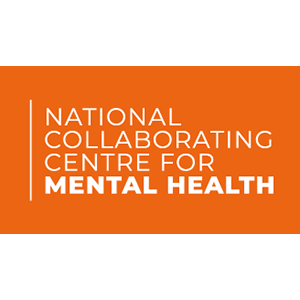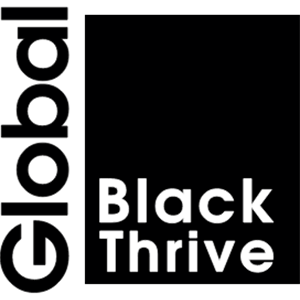Resources
On this page you will find a range of resources related to the Culture of Care programme.
Our programme team and partners have brought these resources together, which align with the Culture of Care standards, to support teams implementing the standards and for interest. They do not necessarily reflect the College's position on any particular topic.
If you would like to suggest any resources to be shared on this page, please email them to cultureofcare@rcpsych.ac.uk.
Information for participating organisations:
- Culture of Care Information pack - February 2024
Question and Answer sessions:
- Question and Answer session recording - 27 February 2024
- Question and Answer session recording - 12 March 2024
Foundations of the programme:
- Quality Transformation Programme - NHS England
- Research and resources – Health and Social Care, Neurodiverse connection
- Meeting the Needs of Autistic Adults in Mental Health Services – NHS England (2023)
- Learning disability services monthly statistics from Assuring Transformation dataset: Data tables – NHS England Digital
- Why is Healthcare so Inaccessible to Autistic People – Roches Rosa (2022)
- Autism Adapted Safety Plan – Mental Health in Autism, University of Nottingham
- Roundabout theory, Ann's Autism Blog
- The ‘double empathy problem’: Ten years on, Damian Milton, Emine Gurbuz, and Beatriz López
- The Intersections in “Intersectionality”, Michelle I. Gao, Harvard Crimson
- Nicholas' story: 'Man with autism ‘free’ after 11 years in mental health units', Channel 4
- The Culture of Care: Incorporating Autism-Informed and Trauma-Informed Care (2025), Design in Mental Health podcast
- NHS England’s Guidance: Autism-informed inpatient care
Sensory Environments
- Resources on sensory environments – Buildings and Design, Neurodiverse Connection
- Sensory-inclusive spaces for autistic people: We need to build the evidence base, Catherine Manning, Gemma Williams, and Keren MacLennan
- 'It's Not Rocket Science' Report and Webinar on Inpatient Sensory Environments, Neurodiverse Connection
- Improving the Sensory Environments of Mental Health In-Patient Facilities for Autistic Children and Young People – Williams, Corbyn and Hart (2023)
- Autistic SPACE: A Novel Framework for Meeting the Needs of Autistic People in Healthcare Settings – Doherty, McCowan and Shaw (2023)
Positive Behaviour Support (PBS) and Applied Behaviour Analysis (ABA)
- Patient and Carer Race Equality Framework (PCREF) - South London and Maudsley NHS Foundation Trust
- Patient and Carer Race Equality Framework (PCREF) - Easy read version
- Patient and Carer Race Equality Framework (PCREF) - One-page infographic
- NHS England's Guidance: Culturally competent inpatient care – helping teams deliver care that recognises and values cultural identity and experience.
Co-production guidance document
- A guidance document for wards to support meaningful coproduction and develop lived experience roles - NCCMH, NDC, BTG and Trauma-informed Care Collaborative, 2026
- Supporting co-production and lived experience leadership summary sheets, NCCMH, NDC, BTG and Trauma-informed Care Collaborative, 2026
Co-production in mental health:
Co-production in mental health - not just another guide - Skills for Care
Sheffield Flourish - a charity that works collaboratively on innovative digital and community projects, recognising the untapped strengths of people who’ve experienced mental health challenges
Coproduction in Mental Health Toolkit - National Development Team For Inclusion (NDTi)
Tools to co-produce
- Co-production Project Planner - Iriss
- Co-design tools - Pilotlight, Iriss
- Reflective questions to support co-produced research - Applied Resources West, NIHR
- Influence and participation toolkit - Mind
Reports
- Lived Experience Leadership - National Survivor User Network
Nordin A, Kjellstrom S, Robert G, Masterson D, Areskoug Josefsson K. Measurement and outcomes of co-production in health and social care: a systematic review of empirical studies. BMJ Open. 2023;13:e073808.
Marsilio M, Fusco F, Gheduzzi E, Guglielmetti C. Co-Production Performance Evaluation in Healthcare. A Systematic Review of Methods, Tools and Metrics. International Journal of Environmental Research and Public Health. 2021;18:3336.
Faulkner, A., & Thompson, R. (2023). Uncovering the emotional labour of involvement and co-production in mental health research. Disability & Society, 38(4), 537–560.
Lambert, N. and Carr, S. (2018), ‘Outside the Original Remit’: Co-production in UK mental health research, lessons from the field. Int J Mental Health Nurs, 27: 1273-1281
AIDS Bereavement and Resiliency Program of Ontario (although this relates to people living with HIV it has some helpful well-being tools for people with lived experience involved in co-production e.g., bracketing, grounding and holistic check-ins)
Other useful resources
Working Well Together - Royal College of Psychiatrists
Co-production: an introduction - NHS England
Co-production: what it is and how to do it - Social Care Institute for Excellence (SCIE)
What is co-production - East London Foundation Trust
A Guide To Co-production - Tameside and Glassop Integrated Care NHS Foundation Trust
Resources and training - Learning for Involvement - National Institute for Head and Care Research (NIHR)
Resources and Support - UK Standards for Public Involvement
Resources - Fuse, the Centre for Translational Research in Public Health
A map of resources for co-producing research in health and social care - Applied Resources West, NIHR
Lived Experience Leadership Digital Library - National Mental Health Consumer & Carer Forum
Co-production Research Toolkit - Leeds Social Sciences Institute, University of Leeds
4Pi Involvement Standards - National Survivor User Network
Understanding Boundaries - Neurodiverse Connection
Watch a British Sign Language video aims at people with lived experience of inpatient mental health care.
The video provides information on what the Culture of Care Programme is and how to get involved.
Core Managers: Developing Inclusive Workplaces programme, NHS England. (This 'e- social learn' programme is designed for health and care managers and supervisors to help them develop core inclusive leadership skills.)
Book: The 15 commitments of conscious leadership: A new paradigm for sustained success. By J. Dither, D Chapman and K. Warner Klemp. 2015
Book: Intelligent kindness: reforming the culture of healthcare. By J. Ballatt and P. Campling. 2011.
Book: Community: the structure of belonging. By P.Block. 2008
Book: Why David sometimes wins: Leadership, Organization, and Strategy in the California Farm Worker Movement. By M.Ganz. 2009.
Book: Humble inquiry: the gentle art of asking instead of telling. By E. Schein. 2013.
Book: Impact with integrity: repairing the world without breaking yourself. By B. Margiotta. 2022.
Book: New Power: How anyone can persuade, mobilise and succeed in our chaotic connected age. By J Hermans and H Timms. 2019.
Book: The genius zone: the breakthrough processs to end negative thinking and live in true creativity. By G Hendricks. 2021.
Book: Thinking in systems. By D. Meadows. 2008.
Book: Made to stick: why some ideas survive and others die. By C. Heath and D. Heath. 2007.
Book: Scarcity why having so little means so much. By S. Mullainathan and E. Shafr. 2013.
Worksheet: White dominant culture and something different. Adapted for ACCE from adaptation by Partners for Collaborative Change based on “White Supremacy Culture” By Tema Okun and Kenneth Jones, for large, majority white environmental organisations, using interviews with staff and partners of these organisations.
Book: The Body keeps the score, Bessel Van de Kolk (2014)
(mis)understanding trauma-informed approaches in mental health. Angela Sweeney; Danny Taggart Journal of Mental Health 2018 Vol27, N) 5,383-387
‘Trauma informed or trauma denied’. Principles and implementation of trauma informed services for women’. Elliot et al. Journal of Community Psychology. 2005
Trauma-informed mental healthcare in the UK: what is it and how can we further its development?“. Mental Health Review Journal, Sweeney et al (2016)," Vol. 21 Iss 3 pp. 174 - 192
A paradigm shift: relationships in trauma-informed mental health services. Sweeney A, Filson B, Kennedy A, Collinson L, Gillard S. BJPsych Adv. 2018 Sep;24(5):319-333. doi: 10.1192/bja.2018.29. PMID: 30174829; PMCID: PMC6088388.
Trauma-Informed Services: A Self-Assessment and Planning Protocol, Fallot & Harris (2006)
About #Checkwithmefirst? - The Survivors Trust
NHS England's Guidance: Trauma-informed and harm-aware inpatient care – supporting services to create safe, personalised environments, grounded in an understanding of the widespread impact of trauma.
Drayton Park Crisis House as an example of a Trauma informed practice:
Coercion or collaboration: service-user experiences of risk management in hospital and a trauma-informed crisis house. Hannah Prytherch, Anne Cooke & Ian Marsh. 10 Nov 2020
Book: Women and Power: The Drayton Park Crisis House, Anne Cooke, Shirley McNicholas and Andie Rose.
Animations:
What is Trauma - Bessel van der Kolk (Youtube)
Trauma and the brain - NHS Lanarkshire (Vimeo)
Further guidance:
- Restrictive interventions and seclusion: time for another look -Journal of Psychiatric Intensive Care, 15 (1): 1–3 doi:10.20299/jpi.2019.006 - NAPICU 2019
- Design Guidance for Psychiatric Intensive Care Units, 2017 - National Association of Psychiatric Intensive Care Units (napicu) & Design in Mental Health Network
- Support for improving community-based care for self-harm - The University of Manchester
- Manchester Self-Harm Project - Data on emergency department presentations for self-harm in Manchester
- Mutual Support for Mental Health-Research (MS4MH-R) - Patient, carer partners and public involvement in research
Report
- The assessment of clinical risk in mental health services - National Confidential Inquiry into Suicide and Safety in Mental Health
- Autism community priorities for suicide prevention - International Society of Autism Research
Guidelines
- Self-harm: assessment, management and preventing recurrence - National Confidential Inquiry into Suicide and Safety in Mental Health
- The new NICE self-harm guidelines, aftercare and intervention - National Confidential Inquiry into Suicide and Safety in Mental Health
Publications
- Carter G, Milner A, McGill K, Pirkis J, Kapur N, Spittal MJ. Predicting suicidal behaviours using clinical instruments: systematic review and meta-analysis of positive predictive values for risk scales. The British Journal of Psychiatry. 2017 Jun;210(6):387-95.
- Chan MK, Bhatti H, Meader N, Stockton S, Evans J, O'Connor RC, Kapur N, Kendall T. Predicting suicide following self-harm: systematic review of risk factors and risk scales. The British Journal of Psychiatry. 2016 Oct;209(4):277-83.
- Graney J, Hunt IM, Quinlivan L, Rodway C, Turnbull P, Gianatsi M, Appleby L, Kapur N. Suicide risk assessment in UK mental health services: a national mixed-methods study. The Lancet Psychiatry. 2020 Dec 1;7(12):1046-53.
- Large MM, Ryan CJ, Carter G, Kapur N. Can we usefully stratify patients according to suicide risk?. Bmj. 2017 Oct 17;359.
- Morriss R, Kapur N, Byng R. Assessing risk of suicide or self-harm in adults. BMJ. 2013 Jul 25;347.
- Quinlivan L, Cooper J, Meehan D, Longson D, Potokar J, Hulme T, Marsden J, Brand F, Lange K, Riseborough E, Page L. Predictive accuracy of risk scales following self-harm: multicentre, prospective cohort study. The British Journal of Psychiatry. 2017 Jun;210(6):429-36.
- Quinlivan L, Cooper J, Steeg S, Davies L, Hawton K, Gunnell D, Kapur N. Scales for predicting risk following self-harm: an observational study in 32 hospitals in England. BMJ open. 2014 Apr 1;4(5):e004732.
- Quinlivan L, Gorman L, Littlewood DL, Monaghan E, Barlow SJ, Campbell S, Webb RT, Kapur N. ‘Wasn’t offered one, too poorly to ask for one’–Reasons why some patients do not receive a psychosocial assessment following self-harm: Qualitative patient and carer survey. Australian & New Zealand Journal of Psychiatry. 2022 Apr;56(4):398-407
- Quinlivan L, Gorman L, Marks S, Monaghan E, Asmal S, Webb RT, Kapur N. Liaison psychiatry practitioners’ views on accessing aftercare and psychological therapies for patients who present to hospital following self-harm: multi-site interview study. BJPsych open. 2023 Mar;9(2):e34.
- Quinlivan L, Gorman L, Monaghan E, Asmal S, Webb RT, Kapur N. Accessing psychological therapies following self-harm: qualitative survey of patient experiences and views on improving practice. BJPsych open. 2023 May;9(3):e62.
- Quinlivan L, Steeg S, Elvidge J, Nowland R, Davies L, Hawton K, Gunnell D, Kapur N. Risk assessment scales to predict risk of hospital treated repeat self-harm: A cost-effectiveness modelling analysis. Journal of affective disorders. 2019 Apr 15;249:208-15.
- Quinlivan LM, Gorman L, Littlewood DL, Monaghan E, Barlow SJ, Campbell SM, Webb RT, Kapur N. ‘Relieved to be seen’—patient and carer experiences of psychosocial assessment in the emergency department following self-harm: qualitative analysis of 102 free-text survey responses. BMJ open. 2021 May 1;11(5):e044434.
- Steeg S, Quinlivan L, Nowland R, Carroll R, Casey D, Clements C, Cooper J, Davies L, Knipe D, Ness J, O’connor RC. Accuracy of risk scales for predicting repeat self-harm and suicide: a multicentre, population-level cohort study using routine clinical data. BMC psychiatry. 2018 Dec;18:1-1
Deconstructing the diagnosis of personality disorder: PAR Learning Event, 8 April 2025
Lived experience-led resources:
- Asylum Magazine (Volume 14 No 3) Autumn 2004
- Deconstructing BPD
- Watts, Jay. The epistemic justice of borderline personality disorder. BJPsych International 21, no. 4 (2024) 78-82.
- Watts, Jay. Complex trauma and the unseen: who gets to be a victim? BMJ Mental Health (2024 Jan); 27 (1)
- Aves, W. Dispelling myths and challenging neglect in 'borderline personality disorder' healthcare: a lived experience perspective. Journal of Psychosocial Studies (2023 Aug); 16(2): 179 - 92.
- Wildbore E, Bond C, Timmons S, Hui A, Sinclair S. Service Users' Perspectives on Communicating Compassion in Mental Health Practice. Nursing Open (2024 Nov); 11(11): e70081
- Wildbore EL. What is the long-term impact of being part of a Therapeutic Community for staff and service-users, 4 years after the closure of the service? Therapeutic Communities: The International Journal of Therapeutic Communities (2025 May)
Bruch Tamilson paper:
- Tamilson B, Eccles JA, Shaw SC. The experiences of autistic adults who were previously diagnosed with borderline or emotionally unstable personality disorder: a phenomenological study. Autism (2025 Feb); 29(2): 504-1
Data, Research and Reports:
- Safer care for patients with personality disorder - The University of Manchester
- Annual Report 2023: UK patient and general population data 2010 - 2020 - The University of Manchester
- Clinical characteristics and care pathways of patients with PD who died by suicide - The University of Manchester
- Flynn S, Graney J, Nyathi T, Raphael J, Abraham S, Singh-Dernevik S, Williams A, Kapur N, Appleby L, Shaw J. Clinical characteristics and care pathways of patients with personality disorder who died by suicide. BJPsych Open (2020 Mar); 6(2): e29
- Flynn S, Raphael J, Graney J, Nyathi T, Williams A, Kapur N, Appleby L, Shaw J. The personality disorder patient pathway: Service user and clinical perspectives. Personality and Mental Health (2019 Aug); 13(3): 134-43
- Safer care for patients given a diagnosis of personality disorder: a learning resource - The University of Manchester






